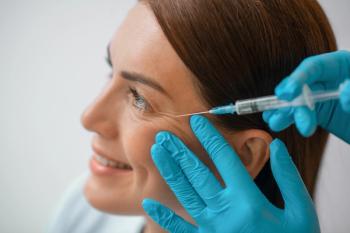
- Innovative Perspectives: Aesthetic Authority Vol. 2: No. 3
- Volume 2
- Issue 3
There’s Nothing New About This “New Normal”
In his latest editorial, Randolph Waldman, MD, discusses the Delta and Lambda variants of COVID-19, complex questions about vaccinations, and what boosters mean for the pandemic’s future.
What a difference just a couple of months can make. Things were rolling along and our practices and lives seemed to be getting back to some sense of normality. The pandemic had run its course. The pandemic seemed to be slowing…then along came the Delta and Lambda variants.
Now we are left to wonder whose statistics to believe. How many individuals have really been vaccinated? It seems as though I am seeing more unvaccinated patients than those who have received one of the vaccines.
More importantly, which vaccine is the most reliable and for how long does it really provide solid protection? I am hearing from vaccinated friends who were sick within the past month.
In recent days, it seems that many of my colleagues have already received their booster injections. All the while, the CDC is now making available, or even recommending, a booster no later than 8 months after the second injection. You have to wonder whether the immunity provided by the COVID-19 vaccine is not more in line with that provided by the influenza vaccine, because 6 to 8 months seems about right.
Personally, if this is what we must do to put this dark chapter in history behind us, then I am all in. This highlights the need to ask specific questions about our future in the pandemic, including the following:
- Should we be forced to receive the vaccine if we wish to dine out, fly, attend a concert, go to a ball game, or even attend a live medical conference?
- Moreover, should we require all our employees to be vaccinated to safeguard our patients, fellow employees, and prevent the practice from closure should an infection spread among key employees?
- Should our patients and staff be required to mask up when entering our practices?
- Should our children be required to mask up to attend their schools, or should schools be open at all?
- Should we require polymerase chain reaction (PCR) testing for all our surgical patients? What about our injectable patients? Should they be tested?
At least 1 of our colleagues sadly passed away after acquiring COVID-19, conceivably from a lip injection patient. In Kentucky, the COVID-19 infection rate in mid-August exceeded all previous highs and the positivity rate was over 12%—also a record. What to do?
I know what we are doing in our practice, and that is protecting our patients and our staff as best we can. However, we are moving forward with our lives. The practice continues to encourage the unvaccinated among us to get vaccinated, but we do not believe it should be forced on anyone.
We continue to test all surgical patients within 36 hours of a procedure with a PCR test and confirm the morning of surgery with a rapid test. We test all patients who are receiving injectable filler treatments with a rapid test while they are awaiting the treatment. Additionally, masks are required for everyone entering the office.
I am very much looking forward to creating a safe environment in Miami’s South Beach at the Global Aesthetics Conference in early November. It is important to continue living our lives. Sharing time with trusted and likely vaccinated (many with boosters on board) colleagues is always much needed in this chaotic world.
Articles in this issue
over 4 years ago
Innovative Perspectives: Aesthetic Authority Vol. 2: No. 3over 4 years ago
Botulinum Toxin A Effective in Upper Lip Enhancementover 4 years ago
Expert Advice: Don’t Shrug Off Postpartum Hair Lossover 4 years ago
Adipose-Derived Stem Cells for Wound Healingover 4 years ago
Rare Cryolipolysis Complicationsover 4 years ago
Single-Plane vs Double-Plane MFU-V for Upper Arm Skin Laxityover 4 years ago
Is NPS effective for facial treatment?over 4 years ago
Marine Collagen—Safe and Effective for Skin Rejuvenation?Newsletter
Like what you’re reading? Subscribe to Dermatology Times for weekly updates on therapies, innovations, and real-world practice tips.











